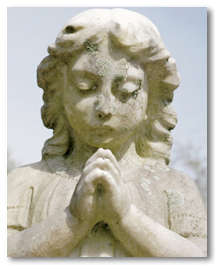Disturbing Lessons From the Case of Dr. Death
- COLLEEN CARROLL CAMPBELL
Following Dr. Jack Kevorkian's release from prison this month, assisted-suicide activists have taken to America's airwaves and oped pages to caution us against getting the wrong idea about the right to die.
 |
Don't look at the ghoulish practices of "Dr. Death," they tell us.
The 79-year-old pathologist assisted at the suicides of some 130 people, often failing to dispose of his dead properly. After flouting the law for years, Kevorkian was imprisoned in 1999 for the second-degree murder of a man with Lou Gehrig's disease, whose death by lethal injection Kevorkian videotaped for 60 Minutes. In 2000, the New England Journal of Medicine published data from the autopsies of 69 Kevorkian cases showing that only a quarter of his "patients" were terminally ill and that five showed no evidence of physical illness.
Activists assure us that legalizing assisted suicide would not lead to a spate of suicides among the depressed and disabled or a mandate to dispose of burdensome infants and elderly. As a model, they cite Oregon, where a controversial law has facilitated the physician-assisted suicides of about 300 people in the past decade. But critics note that Oregon's law does not require autopsies or encourage critical investigation into the circumstances of those deaths, so it is difficult to gauge its true effect.
We can find evidence of the consequences elsewhere. In the Netherlands, where adult and teenage euthanasia has been legal since 2002, the Dutch Royal Medical Association recently persuaded the government to establish a committee to regulate infant euthanasia. According to a 2005 New England Journal of Medicine article by Dutch doctors, some 600 Dutch infants die each year as a result of medical decisions to end their lives, and 15 to 20 of these include "patients who are not dependent on intensive medical treatment but for whom a very poor quality of life, associated with sustained suffering, is predicted." So a physician's forecast that a child will have a miserable life can double as a death warrant.
The Dutch are not alone in their slide toward infanticide and involuntary euthanasia. A 2005 study published in The Lancet that examined the deaths of about 250 Belgian infants found that more than half of the deaths had followed a doctor's decision to end the infant's life, sometimes using lethal doses of medication. In a country in which adult euthanasia is legal and a push is underway for legalized child and teenage euthanasia, most physicians surveyed expressed willingness to end the lives of severely ill infants in their care.
In America, the "futile care theory" that says resources should not be wasted on patients with poor prognoses is gaining traction; the theory's applications can be deadly. In 2005, 11-year-old Haleigh Poutre had been hospitalized for only eight days when her Massachusetts state custodians began fighting to remove her ventilator and feeding tube. Doctors had diagnosed her condition as a persistent vegetative state, but Poutre recovered before they could euthanize her.
Most Americans believe that the terminally ill should be free to reject excessively burdensome treatments with dubious benefits or unreasonable costs relative to benefits. But laws that propose suicide as a solution to human suffering reinforce the message that the disabled, depressed and severely ill are burdens who can find dignity only in death.
When asked recently if he regretted the murder that landed him in prison, Kevorkian said he had euthanized "a man whose life didn't measure up anymore." Assisted suicide advocates may wince at Kevorkian's candor. But they cannot deny the link between his logic and the push for laws that define human dignity as contingent on our age, our condition and how we die.
 This is Meaghen Gonzalez, Editor of CERC. I hope you appreciated this piece. We curate these articles especially for believers like you.
This is Meaghen Gonzalez, Editor of CERC. I hope you appreciated this piece. We curate these articles especially for believers like you.
Please show your appreciation by making a $3 donation. CERC is entirely reader supported.

Acknowledgement
Colleen Carroll Campbell. "Disturbing Lessons From the Case of Dr. Death." St. Louis Post-Dispatch. (June 14, 2007).
Reprinted with permission of the author, Colleen Carroll Campbell.
The Author
 Colleen Carroll Campbell is an author, print and broadcast journalist and former presidential speechwriter. She is the author of My Sisters the Saints: A Spiritual Memoir and The New Faithful: Why Young Adults Are Embracing Christian Orthodoxy. Her website is here.
Colleen Carroll Campbell is an author, print and broadcast journalist and former presidential speechwriter. She is the author of My Sisters the Saints: A Spiritual Memoir and The New Faithful: Why Young Adults Are Embracing Christian Orthodoxy. Her website is here.





